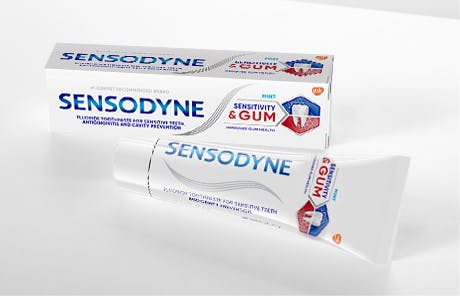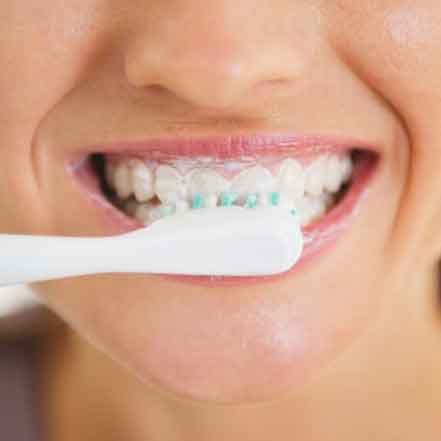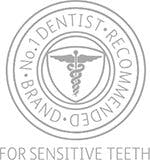Do Your Teeth Hurt in Cold Weather?

Do you ever find that your teeth feel sensitive when you head outside during the winter and breathe through your mouth? If so, don’t worry — you’re not just imagining it. The dental pain triggered by extreme temperatures can have several causes such as tooth decay, exposed dentin, upset tooth nerves due to grinding teeth, or a worn out dental filling.1 Learn more about tooth sensitivity and how cold weather can contribute to the pain.
What Is Tooth Sensitivity, and What Causes It?
Tooth sensitivity occurs when enamel, or the protective layer around your teeth begins to wear away.1 Enamel covers dentin, which contains tubules that connect to the nerves and cells inside the tooth.1 When dentin is exposed, the tubules allow hot or cold to reach the nerves in the tooth.1 Other causes of tooth sensitivity include gum disease, tooth whitening and brushing too hard.2
How Does Cold Weather Affect Sensitive Teeth?
If you’ve ever felt pain after biting into something cold, it’s likely caused by tooth sensitivity. Exposure to cold air can also cause you to feel the sensitivity in your teeth.2 Sudden changes in mouth temperature can also result in cracked teeth, which can cause pain and sensitivity.3 Small cracks (craze lines) in the enamel are common in adults and do not typically require treatment, but cracks that are more severe should be treated by a dental professional as soon as possible.3
Winter is also the time when respiratory illnesses like the common cold are most prevalent.4 Colds can produce too much mucus, which blocks the opening of the sinuses and lead to sinusitis.5 Toothache and face tenderness are common symptoms of acute sinusitis, along with other typical symptoms like fever, nasal stuffiness and coughing.5 If you suspect that sinusitis is causing your tooth pain, contact your health care provider.5
How to Prevent Tooth Sensitivity Caused by Cold Weather
Thankfully, there are ways to avoid tooth sensitivity when the weather drops. Brushing properly with a soft toothbrush and regular flossing to help keep your gums healthy are two super easy ways to keep your oral health in good shape.2 Try to remember to change your toothbrush out every two to three months so you’re not using a worn-out toothbrush.2
Although cold weather calls for warm drinks like hot cocoa, it’s important to keep the sugary drinks to a minimum when dealing with tooth sensitivity. Try to have sugary foods or acidic drinks less often or reserve them for mealtimes.2
Using Desensitizing Toothpaste to Help Tooth Sensitivity to Cold Weather
If you don’t have cavities or tooth damage but still have sensitivity, a simple trick to get relief is to brush twice daily with a toothpaste specialized for sensitive teeth, such as Sensodyne Rapid Relief toothpaste, which can help relieve tooth sensitivity in just three days.* Thanks to its unique formulation with stannous fluoride, Sensodyne works to create a protective shield over your teeth’s most sensitive areas, providing sensitivity protection with twice daily brushing. Use the Sensodyne product finder to get the toothpaste that fits all of your oral health and sensitivity needs.
So the next time you’re getting ready to face the cold temperatures, be sure you have your jacket, boots, and Sensodyne, all on hand! Find more helpful tips on dealing with tooth sensitivity from the experts at Sensodyne.
*with twice daily brushing
- Sensitive Teeth. American Dental Association. https://www.mouthhealthy.org/en/all-topics-a-z/sensitive-teeth Accessed 5/31/2023.
- Sensitive teeth. Oral Health Foundation. https://www.dentalhealth.org/sensitive-teeth Accessed 5/31/2023.
- Cracked teeth. Oral Health Foundation. https://www.dentalhealth.org/sensitive-teeth Accessed 5/31/2023.
- Common Cold. MedlinePlus. https://medlineplus.gov/commoncold.html Accessed 5/31/2023.
- Sinusitis. MedlinePlus. https://medlineplus.gov/ency/article/000647.htm Accessed 5/31/2023.













